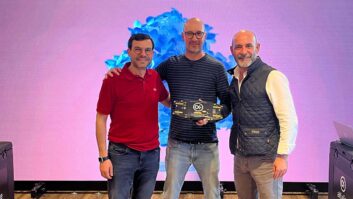Alfalite, the only European manufacturer of LED screens, has obtained both the NCAGE Code (NATO Commercial and Government Entity) and TAA (Trade Agreements Act) compliance certification. These two certifications enable Alfalite to participate in defence and governmental procurement projects across NATO member states and the US government, including contracts requiring strict compliance and traceability standards.
Alfalite is now one of a select group of LED display manufacturers with both TAA and NCAGE Code certification.
 The NCAGE Code, issued under NATO’s Codification System, officially registers Alfalite as a recognised supplier within the NATO Support and Procurement Agency (NSPA) database. It opens the door for the company to participate in mission-critical, high-security projects within the defence, security, and institutional sectors across NATO allies.
The NCAGE Code, issued under NATO’s Codification System, officially registers Alfalite as a recognised supplier within the NATO Support and Procurement Agency (NSPA) database. It opens the door for the company to participate in mission-critical, high-security projects within the defence, security, and institutional sectors across NATO allies.
Luis Garrido, executive director of Alfalite, said: “Our NCAGE certification is a strategic enabler that allows us to operate within global defence and government acquisition frameworks. It demonstrates that our LED solutions meet the most rigorous standards of quality, reliability, and security required for sensitive environments.”
In parallel, Alfalite has achieved TAA compliance, referring to adherence to the Trade Agreements Act (TAA), a United States federal law enacted in 1979. TAA compliance is particularly relevant for companies supplying products to the US federal government, including contracts under the General Services Administration (GSA). Therefore, products made by Alfalite in Spain are eligible for US federal contracts that require TAA compliance.
This certification is reinforced by Alfalite’s Spanish Certificate of Origin, which certifies the country of manufacture and is essential for determining eligibility under trade agreements, as well as for calculating duties and tariffs.
“Having full traceability and producing 100% in Spain is part of our DNA,” added Garrido. “This allows us not only to comply with international regulations like TAA, but also to control quality end-to-end, reduce environmental impact, and support our local economy.”







